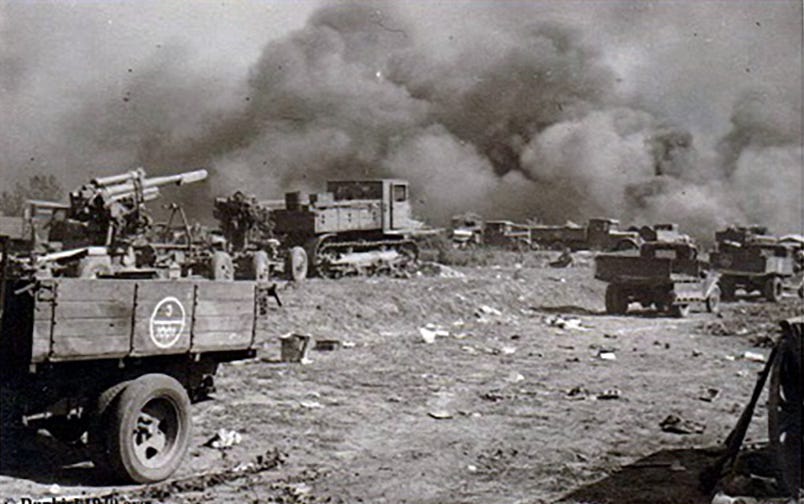Confused fighting in Boulogne
23rd May 1940: Auxiliary troops, led by a World War I VC hero, man the defences of the port until the last moment

In England it had been hoped that the ports of Boulogne, Calais and Dunkirk could be held open to evacuate the British and French troops now in full retreat to the coast. Two battalions of Guards were hurriedly diverted from their training exercise in England and sent by Royal Navy destroyer to Boulogne. They arrived at dawn on 22nd May. Unfortunately, they had limited supplies with them and only a few anti-tank guns.
Falling back to Boulogne was Lieutenant-Colonel Donald Dean, who commanded around 1,500 non-combat troops from the Auxiliary Military Pioneer Corps, which serviced the supply lines. This was not a prestigious unit, manned mainly by men deemed unfit for any other military duty. But Dean was a veteran of the 1914-18 war, where he had been awarded the Victoria Cross for leading his platoon into an enemy trench and defending it against repeated German counter-attacks.

Dean now found himself under the command of Brigadier Fox-Pitt, who had just arrived from England, and joined the Guardsmen and a variety of stragglers in the defence of Boulogne. He soon had most of his men armed, and they joined the long perimeter line on the outskirts of the town. He describes1 the fight to defend the port, which came under sustained attack on 23rd May:
... 5 Group had to form and man eight road blocks, which we proceeded to do mainly with lorries abandoned by the quayside. As I had no signallers 1 arranged my Group HQ as near as possible to the Welsh Guards Bn HQ and left runners there to bring any messages.
Shortly afterwards one of my posts was attacked by a German tank. Several rounds were fired at it from a Boys anti-tank rifle but the bullets just bounced off.
It did, however, withdraw round the corner. Shortly afterwards either this or another similar tank tried another of our road blocks where lorries were merely placed across the road, these it just pushed out of the way and lumbered on towards the larger block we had been making slightly further back, again basically of lorries and cars reinforced with furniture and materials from bombed houses.
We fired at the tank with rifles, as we had nothing else, but naturally did not stop it. It shelled us with a light gun and caused us several casualties and then, after a pause for consideration, finding that we only had rifles, it proceeded to climb very slowly over our block. We were prepared for this and, the firing having brought me early to the spot, I had some lorry petrol tanks punctured with a rifle and my revolver, the tank being unable to shell us during its crushing climb, and we set fire to the lot. A sheet of flame went up and the tank backed hastily off and halted once more almost round the last bend.



